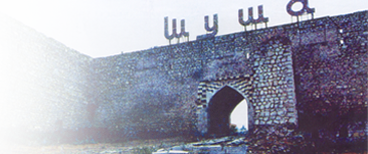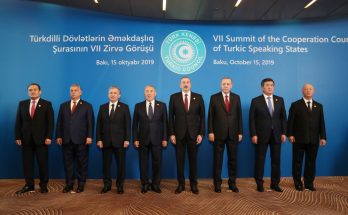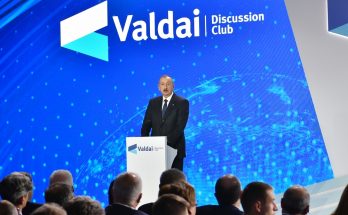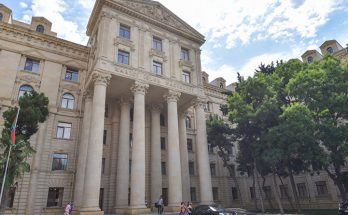 This is my first visit to Baku in my current job as Undersecretary of State.
This is my first visit to Baku in my current job as Undersecretary of State.
I was last here in 1992, as a young diplomat working for Secretary Baker, on his first visit to a newly independent Azerbaijan. Much has changed since then, in Azerbaijan and in the world, and I greatly admire all that your country has achieved, said US Under Secretary of State for Political Affairs William Burns at the Azerbaijan Diplomatic Academy, APA reports.
I am grateful for the opportunity to meet later today with President Aliyev and to speak with members of civil society. We value our bilateral relationship with Azerbaijan and are deeply appreciative of your country’s support with regard to Afghanistan, counterterrorism, and other important elements of regional and global security. We look forward to a growing and deepening relationship over the coming years on these and other issues.
Our history of shared relations with Azerbaijan is a long and fruitful one on many fronts, with the notable success of the Baku-Tbilisi-Ceyhan pipeline as only one example of that cooperative and collaborative spirit. The pipeline unlocked Caspian energy resources for the world, but it and other projects have also fueled Azerbaijan’s economy and secured a more independent economic future for the Azerbaijani people.
I realize that some talk about competition between U.S. and Russian energy policies as the next Great Game in Central Asia. This is misleading. While there are always elements of competition in energy matters, as in any commercial area, the U.S. does not believe that energy security is a zero-sum game. It is our firm belief that we can gain more by working together than against one another. Greater interconnectivity maximizes diverse sources and routes, ensures better market pricing, and protects against supply disruptions, for the good of all countries.
More broadly than energy, we are committed to efforts to enhance regional security in the Caucasus. Working together with Russia and France as OSCE Minsk Group co-chairs, we are engaged at the highest level in trying to find a stable and durable resolution to the Nagorno-Karabakh conflict on the basis of the Helsinki principles of territorial integrity, self-determination and non-use of force or the threat of use of force. My colleague, Ambassador Bob Bradtke, is leading this effort for us. President Obama and Secretary Clinton also take a very active personal interest in the success of the Minsk Group efforts as part of our comprehensive approach to security in the region. Peace, stability and tolerance can only benefit all the people in the Caucasus region.
We also believe that the strengthening of democratic institutions, rule of law and respect for human rights will have a positive effect on the future of this country and the region, and we will continue to be supportive of efforts in this direction. An active civil society complements the role of government and strengthens the nation as a whole.
The U.S. is a strong friend of Azerbaijan and is committed to working together with the Azerbaijani government and its people to support the development of a secure, prosperous, and democratic state. A strong and dynamic partnership between our two nations is important as we face a range of global challenges which neither of us can tackle alone. I believe that we have such a partnership and my visit here today is a part of that.
Twenty-eight years ago, I sat where you are sitting, in a similar room at the State Department’s Foreign Service Institute, preparing for my first posting as an American diplomat. I have been very lucky in my career, and I am envious of all the experiences that you now have ahead of you. I wish you all the very best, and now I look forward to your questions and comments.
APA




